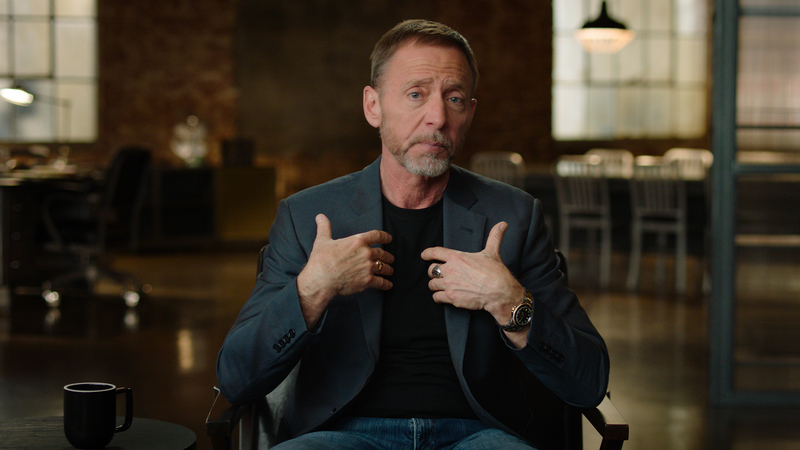
Chris Voss, the FBI Hostage Negotiator
Why good negotiation hinges on nuance and emotional control
April 26, 2020 · Updated February 6, 2026
This post originally appeared on The Profile.
—
Chris Voss knows a thing or two about navigating a high-stakes situation.
As the FBI’s lead international kidnapping negotiator, he spent 24 years of his career interacting with some of the world’s most dangerous criminals. In 2006, he was the lead negotiator on the case of Jill Carroll, the reporter who was kidnapped in Iraq. He was instrumental in the Steve Centanni kidnapping case in the Gaza Strip. And he also successfully negotiated the surrender of hostages during the 1993 Chase Manhattan bank robbery in Brooklyn.
For a long time, negotiation was seen as an adversarial battle between two feuding parties. It was about power, control, and wit. Emotions weren’t part of the equation. “To try and take emotions out of negotiation is a fool’s errand,” Voss says.
Voss rose through the ranks in the FBI and became known for his differentiated negotiation style. Rather than be assertive and adversarial, Voss held the belief that effective negotiation is collaborative. “The adversary is not the person across the table; the adversary is the situation,” he says.
In turn, he leaned on strategies that emphasized emotional intelligence, tactical empathy, positive rapport, and trust-based influence. Years later, Voss has applied his knowledge to help people negotiate effectively in business, at work, or even while quarantined in their homes.
“Whether we notice it or not, we spend our days negotiating for something — for our spouse to do more housework, a child to eat just three more bites or go to bed on time, an extended deadline on a project, a salary increase, a better rate on a vacation package,” he says.
In a time when we’re all stuck at home negotiating with family members on a daily basis, Voss offers a roadmap to more mutual understanding and collaboration.
(Photo credit: MasterClass)
READ.
On becoming a master negotiator: Voss’s book Never Split The Difference is a practical guide to everyday negotiation. Although most people cringe at the thought of negotiating a salary, arguing with a partner, or getting their kids to do their chores, Voss offers a more productive way to get what you want … minus all the gross, negative feelings. Read.
WATCH.
On the techniques for a successful negotiation: This is real footage from Voss’s first real hostage negotiation. He takes you step-by-step through the words and techniques he used to negotiate the surrender of hostages during the 1993 Chase Manhattan bank robbery in Brooklyn. He uses mirroring, labeling, and a tactic called “The Late-Night FM DJ” voice (which are all outlined in the techniques section below). This is a must-watch. Watch.
“The majority of what I’m doing is mirroring. You can be caught off guard by what the other person is saying, and you just start repeating what they’re saying, and they keep talking.”
On honing tactical empathy: In this TEDx Talk, Voss discusses how human nature rules apply across cultures, languages, and socioeconomic backgrounds. Tactical empathy is one of the things he believes is universally wired into humans no matter if you’re a mother, a doctor, or a terrorist. “Emotions are intertwined into all of our decisions,” he says. “We make decisions based on what we care about, which makes decision-making an emotional process.” Watch.
“Tactical empathy can turn adversaries into counterparts.”
On the power of nuance: Nothing in life is fair, people aren’t rational actors, and you should never compromise. In this wide-ranging Google interview, Voss explains the importance of nuance in high-pressure situations. For instance, there’s a lot of power in recognizing the facts while also understanding how the other person interprets those facts. It’s called perspective. Deconstructing a situation and seeing it from multiple angles is key in gaining the upper hand in a negotiation. Watch.
“If someone is talking to you, you’ve got something they want. Period."
LISTEN.
On developing emotional control: A good negotiation hinges on emotional intelligence. “Genuine curiosity is a hack for emotional control,” he says. Prior to the FBI, Voss worked as a call operator on a suicide hotline in order to better learn how to talk with people in distress. “If you talk out loud in a smooth, calming voice, you can actually calm yourself down,” he says. In this Knowledge Project podcast, Voss reveals his go-to tools that work best on all personality types in nearly any situation. Listen.
“There’s a reason why if you talk to yourself out loud sometimes, it can calm you down.”
On the art of not getting defensive: When someone makes an emotional attack, it’s hard not to get triggered. The amygdala wires us to be negative, so maintaining a positive frame of mind requires active effort. “It’s mental hygiene,” Voss says. “If you don’t do it every day, you’ll deteriorate.” There are also ways to ensure we aren’t triggering people’s defenses. Starting a question with the word “why” triggers defensiveness in every single human on the planet. This is a goldmine of information. Listen.
“For every hater, you have to remember that there’ll be 10 people who are on your side.”
On the illusion of control: Getting a “no” doesn’t signify failure. In fact, Voss believes that a “no” kicks off the negotiation process. In certain situations, people feel safe and protected by saying “no.” It feels final and definitive. But once they lay out the problems, the other side can focus on fixing them and creating a tailor-made solution to give their counterpart the illusion of control. In this podcast, Voss emphasizes the power of getting to “no” fast so you can work on collaboratively getting to a mutual understanding. Listen.
“Lay a proposition out, and ask them to help you identify the obstacles.”
TECHNIQUES TO TRY.
Mastering the “Late-Night FM DJ” voice: Voss believes the most important tool in a negotiation is mastering your tone of voice. The Late Night FM DJ voice needs to become your default voice, he says. It’s a declarative, soothing, and downward-inflecting voice that is applicable in nearly every situation. The reason it’s effective is because it hits the mirror neurons in your counterpart’s brain and triggers a neuro-chemical reaction that calms them down. In turn, it creates an involuntary response of clearheadedness in both parties.
Practice mirroring and labeling: Mirroring is a rapport-building technique that is commonly used to put the other person at ease and gather intel. You “mirror” someone by repeating several key words they used in their last communication. (Ie: “I had a really hard day because of all the stress I’m under.” Response: “The stress you’re under?”) Labeling is used to give voice to the other person’s feelings. A good label would be responding with one of the following: “It seems like…, It looks like ... , You seem to be…” (Ie: “It seems like you’re in a stressful situation.”) Using mirroring and labeling in the same conversation diffuses negative feelings, ensures the other person feels heard, and allows you to gather more information.
Follow the 7-38-55 rule: To figure out whether someone is being deceitful during a negotiation, you have to pay attention to inconsistencies between their verbal and non-verbal cues. There’s a concept in interpersonal communication called the 7-38-55 rule. It states that 7% of meaning is communicated through spoken word, 38% through tone of voice, and a whopping 55% through body language. So in a high-pressure negotiation, it’s important to remember that nonverbal signals and body movements communicate far more than words. People who are being sincere don’t typically calculate their body language, Voss says. The opposite is true of people who are being dishonest.
Ask calibrated questions: Voss believes that all questions have an emotional impact based on how they’re constructed. A question that starts with the word “why” can put the other party on the defensive almost instantaneously. Instead, Voss recommends starting with the less threatening, “What?” and “How?” questions. They help someone shape their thoughts more effectively. “This method actually helps your counterpart think, makes the issues more three-dimensional, and gets you better answers,” he says.
QUOTES TO REMEMBER.
“He who has learned to disagree without being disagreeable has discovered the most valuable secret of negotiation.”
“Conflict brings out truth, creativity, and resolution.”
“The beauty of empathy is that it doesn’t demand that you agree with the other person’s ideas.”
"Assumptions blind, hypotheses guide."
“If you can really get at what’s driving someone, you can change their outlook... and their decision-making.”
"When the pressure is on, you don't rise to the occasion--you fall to your highest level of preparation."
👉 If you enjoyed this deep-dive on Chris Voss, tweet to tell others about it:
Want more? Check out the following dossiers:
— Esther Perel, the relationship guru
— Bryan Stevenson, the death row lawyer
— Amelia Boone, the queen of pain
— Neil deGrasse Tyson, the curious starman
— Annie Duke, the master of uncertainty
Did you enjoy this? Polina writes great stuff like this every week!
The Only Subscription
You Need to
Stay at the
Edge of AI
The essential toolkit for those shaping the future
"This might be the best value you
can get from an AI subscription."
- Jay S.
Join 100,000+ leaders, builders, and innovators

Email address
Already have an account? Sign in
What is included in a subscription?
Daily insights from AI pioneers + early access to powerful AI tools








Comments
Don't have an account? Sign up!